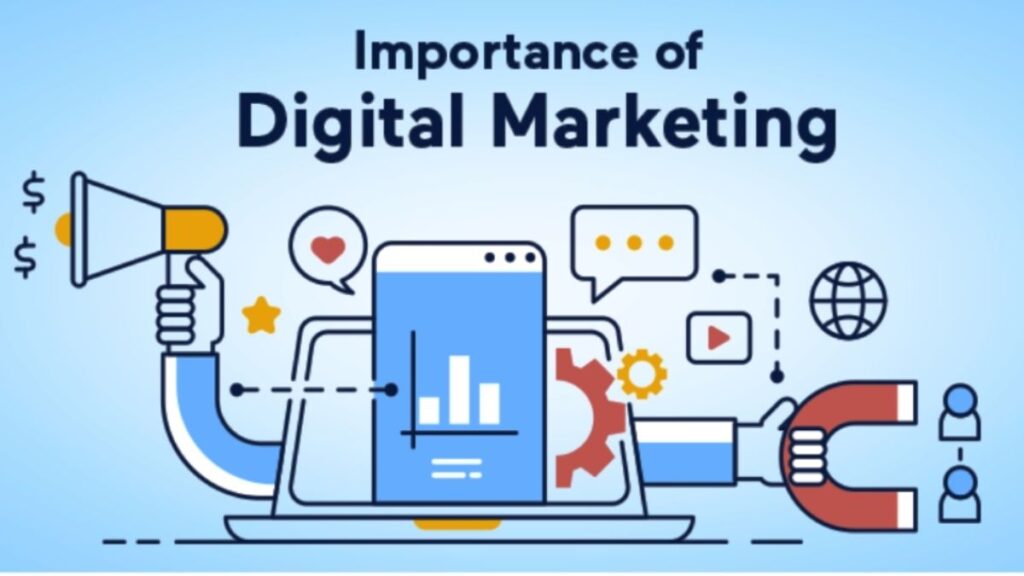- Establishing Credibility and Trust
In an era where consumers rely heavily on the internet for information, a professional website is crucial for establishing credibility. Customers often research businesses online before making a purchase or inquiry. A well-designed website can convey professionalism and instill trust. It serves as a platform to showcase your products or services, share customer testimonials, and provide important information such as contact details, location, and operating hours. - Expanding Your Reach
A website allows you to reach a broader audience beyond your local area. While physical storefronts can limit your customer base, an online presence opens the door to national or even global customers. With effective SEO strategies, your website can attract organic traffic from search engines, bringing in new customers who might not have found you otherwise. - Cost-Effective Marketing
Compared to traditional advertising methods, having a website is a cost-effective marketing solution. It allows you to promote your business 24/7 without the recurring costs associated with print ads, billboards, or TV commercials. You can leverage content marketing, social media integration, and email newsletters to engage your audience and drive traffic to your site, all at a fraction of the cost of traditional marketing. - Showcasing Your Products and Services
A website provides an ideal platform to showcase what you offer. You can create detailed product descriptions, high-quality images, and even videos to highlight your services. This not only helps potential customers make informed decisions but also enhances their overall experience. An online catalog allows for easy browsing and comparison, making it more convenient for customers to choose your products. - Improving Customer Engagement
A website can enhance customer engagement through various features. Integrating a blog can keep your audience informed about industry trends, tips, and news related to your business. Additionally, contact forms, live chat options, and social media links can facilitate communication, allowing customers to reach out with questions or feedback easily. Engaged customers are more likely to convert and become loyal advocates for your brand. - Enhancing Online Sales Opportunities
For small businesses, e-commerce is a game-changer. A website enables you to sell products online, expanding your revenue streams. With an online store, you can reach customers who prefer the convenience of shopping from home. Implementing secure payment gateways and user-friendly checkout processes can significantly enhance the shopping experience, leading to higher conversion rates. - Gathering Valuable Data
A website provides the opportunity to collect valuable data about your customers. Analytics tools can help you track visitor behavior, preferences, and demographics. This information can inform your marketing strategies, allowing you to tailor your offerings to better meet your customers’ needs. Understanding your audience enables you to make data-driven decisions that can enhance your business operations. - Building Brand Identity
Your website is a key component of your brand identity. It’s a platform to communicate your values, mission, and story. Consistent branding across your website—from the color scheme to the tone of your content—helps create a cohesive image that resonates with your target audience. A strong brand identity can differentiate you from competitors and foster customer loyalty. - Staying Competitive
In a competitive market, having a website is essential to staying relevant. Many consumers expect businesses to have an online presence, and failing to meet that expectation can result in lost opportunities. Your website can keep you competitive by showcasing your unique selling points, promoting special offers, and keeping your customers informed about new products or services. - Adapting to Consumer Behavior
As consumer behavior shifts towards online shopping and digital interaction, having a website allows your business to adapt to these changes. Customers increasingly prefer the convenience of researching and purchasing products online. A website ensures you’re aligned with these evolving preferences, making it easier for customers to engage with your brand on their terms.
Conclusion
In summary, a website is an indispensable asset for small businesses in today’s digital landscape. From establishing credibility and expanding your reach to enhancing customer engagement and driving sales, the benefits are numerous. Investing in a professional website not only positions your business for success but also helps you connect with your customers in meaningful ways. Whether you’re just starting or looking to grow, having a well-designed website is a crucial step towards achieving your business goals. Embrace the digital age and let your website be the cornerstone of your small business success!






